Sports nutrition is a fast-growing industry. Sports foods and supplements can play a small but important role in the sports nutrition plans of high performance athletes. Sporting organisations, sports science and medicine practitioners, coaches and athletes all contribute to a pragmatic and transparent approach that balances the pros and cons of supplement/sports food use by considering: is it safe? Is it effective? Is it permitted for use in sport?
If you are a competitive athlete, it is best to seek first the approval of your nutritionist or sports coordinator before taking any sports supplements to ensure that you are taking only what is allowed or legal for your sport.
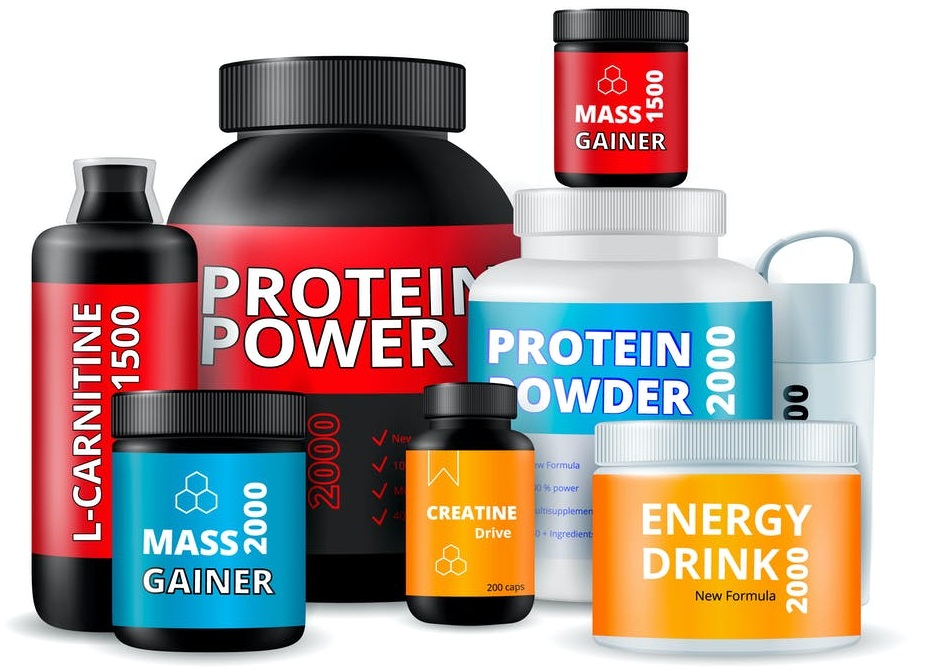
What Is a Supplement?
Dietary supplements have been placed in a special food category and not considered drugs. Supplements are considered an addition to an already healthy diet, they include a variety of drinks, powders and pills. Active adults or athletes may include supplements to help meet their nutritional needs, improve nutrient deficiencies, enhance athletic performance or achieve personal fitness goals. But without a well-designed nutrition plan in place, supplementation is said to be rarely effective. High-quality sports nutrition supplements offer a range of benefits, such as:
- Enhanced performance and endurance
- Reduced likelihood injury
- Improved recovery
- Delayed onset of fatigue
- Ability to focus
- Improved body composition
- Healthy immune system
Below are a few very popular types of sports supplements available in the market:

Pre-workout Supplements
If you don’t fuel yourself properly before exercises or hard workouts, you’ll be less energized, weaker and will fatigue faster than normal. Sometimes referred to as “pre-workouts” — are multi-ingredient dietary formulas designed to boost your energy and athletic performance. They’re typically powdered substances that you mix into water and drink before exercise. While countless formulas exist, there’s little consistency in terms of ingredients. Amino acids, beta-alanine, caffeine, creatine, and artificial sweeteners are often included, but quantities of these vary widely depending on the brand. Although pre-workout supplements are generally safe, they aren’t completely risk-free. If you’re thinking about adding them to your workout regimen, be sure to consider their potential downsides first.
Whey Protein
When it comes to building and preserving muscle mass, protein is one of the most important and popular sports nutrition supplements in the world. Regular consumption of protein, particularly in the ‘anabolic window’ that immediately follows exercise, contributes to the significant growth and repair of muscle fibres. Protein is not gender-specific, meaning that its benefits can extend to men and women of all ages, body types and fitness levels.
Dose
The average person requires approx. 0.8g of protein per kg of body weight every day. However, this requirement is larger for those who regularly take part in endurance training (approx. 1.2g/kg) or strength training (approx. 2g/kg).
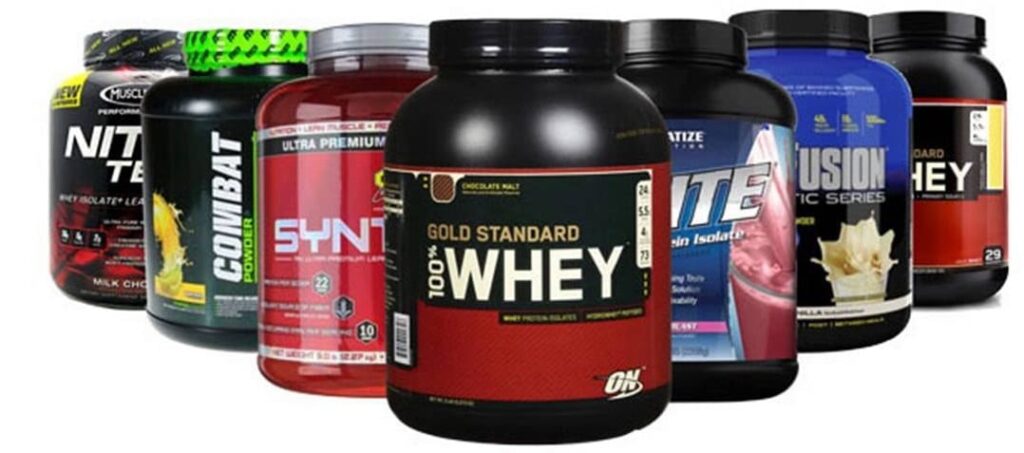
Branched-Chain Amino Acids (BCAAs)
Branched-chain amino acids (BCAAs) consist of three individual amino acids: leucine, isoleucine and valine. They are found in most protein sources, particularly those of animal origin like meat, poultry, eggs, dairy and fish. BCAAs are critically important for muscle growth and make up about 14% of the amino acids in your muscles. Just about everyone consumes BCAAs from food every day, but it’s also very popular to take BCAAs as a supplement. A small amount of research has shown that BCAAs may improve muscle gain or reduce muscle loss, compared to a placebo. However, other research shows that BCAAs may not produce greater muscle gain in those following an exercise program. It’s likely that BCAA supplements may only benefit you if you are not eating enough high-quality protein in your diet. Although they may be beneficial if your diet is inadequate, more information is needed before BCAAs are recommended as a go-to supplement for muscle gain.
Dose
It is difficult to provide an exact dosage that is suitable for everyone; research suggests 0.03-0.05 gm/kg body weight per hour or 2-4 gm per hour during exercise and post workout. It is important to follow the manufacturer’s instructions and not exceed the recommended daily dose.
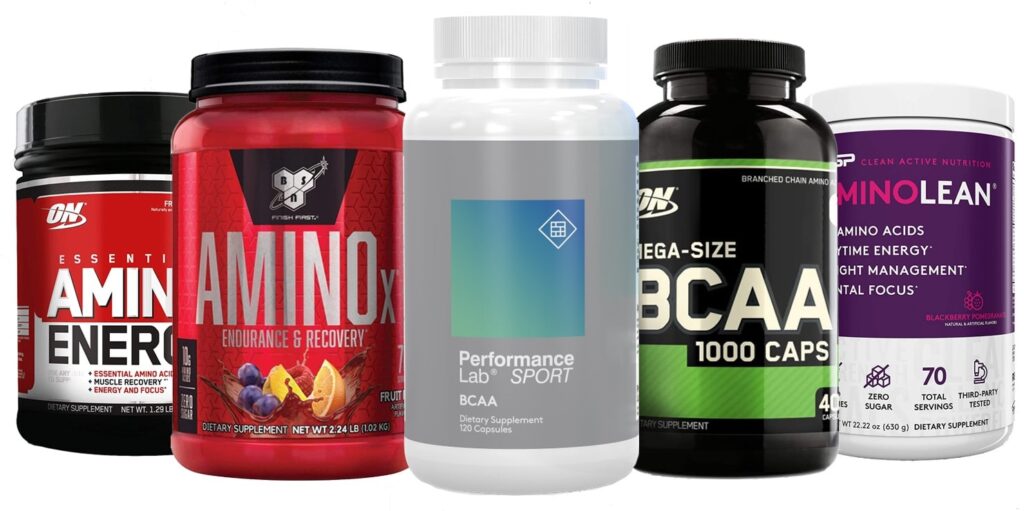
Creatine
Creatine monohydrate is the most popular sports nutrition supplements on the market today. It is the single best-selling workout supplement of all time and has more published human studies showing its safety and efficacy than any other supplement in history. A daily intake of creatine has been shown to increase muscle strength, increase muscle power output, increase muscle speed and increase lean muscle mass. It can alter numerous cellular pathways that lead to new muscle growth, including boosting the formation of proteins that create muscle fibres. Consuming creatine as part of a workout also increases the water content within the muscles, which can quickly increase the size.
Dose

As with all supplements, getting more than you need is not helpful. The amount of creatine that is shown to help with sport performance is 15 to 25 grams per day for 5 to 7 days as the starting dose and 2 to 5 grams per day afterwards for the next few months.
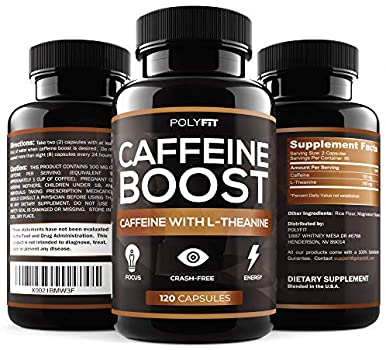
Caffeine
Caffeine is one of the most heavily researched and beneficial ergogenic aids available. It is mostly consumed in coffee, with 1 cup containing around 75mg of caffeine. The understanding of the performance effect of caffeine has increased and this has widened its use. Caffeine acts centrally on the brain to lower the perception of effort, which is particularly noticeable in longer events such as running or cycling. In distance events over 90 minutes, mental tiredness, as well as physical fatigue, plays a large role in determining performance as the event progresses. Caffeine can help to maintain physical performance in this situation.
Dose
For a 150-pound (68 kg) athlete, the recommended dose of caffeine is about 200 mg one hour before exercise.
Glutamine
Glutamine is the most abundant free amino acid in the body. Glutamine is produced in the muscles and is distributed by the blood to the organs that need it. One of glutamine’s main roles in the body is to support detoxification by cleansing the body from high levels of ammonia. It acts as a buffer and converts excess ammonia into other amino acids, amino sugars and urea. Doing approximately one hour of exercise can cause a 40 percent reduction of glutamine in the body. It can also cause suppressed immune function. This has a negative impact on your resistance training and may lead to overtraining syndrome. L-glutamine benefits long distance athletes as well by boosting the immune system. Supplementing with L-glutamine also allows your muscles to fight and push a bit further, which boosts your strength and helps repair your skeletal muscles.
Dose

Studies on glutamine supplements have used a wide variety of doses, ranging from around 5 grams per day up to high doses of approximately 45 grams per day for six. Although no negative side effects were reported with this high dosage, blood safety markers were not specifically examined. Other studies have reported minimal safety concerns regarding short-term supplementation of up to 14 grams per day. Overall, it is believed that the short-term use of supplements is likely safe. However, some scientists have raised concerns about their sustained use. Adding glutamine to a regular diet may cause a variety of changes in the way the body absorbs and processes amino acids. Yet, the long-term effects of these changes are unknown.
Omega 3
Omega 3s come in three types: eicosapentaenoic acid (EPA), docosahexaenoic acid (DHA), and alpha-linolenic acid (ALA). Long-chain fatty acids, EPA and DHA, are found in fish, fish oil supplements, and algae extract. The short-chain form, ALA, is found in plant sources like nuts, flax seed, chia seeds, avocado, and olive oil. Omega 3 speeds up exercise recovery after tough training sessions. The muscles are full of microscopic tears that when healed, make the muscles stronger and bigger. Omega 3’s anti-inflammatory compounds help make recovery happen. Another part of omega 3’s heart health benefit is that they decrease heart rate and the amount of oxygen that the body burns every minute. When competing in sports, this is huge as during every minute of exercise, one person’s body needs more than their competitor.
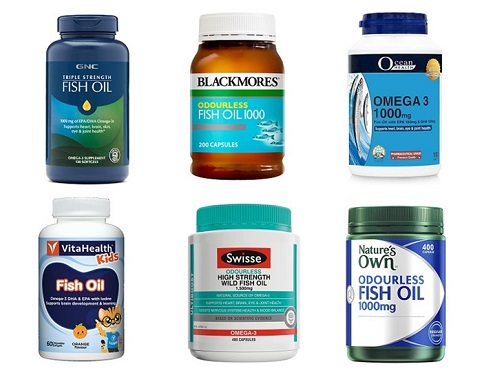
Dose
The best way to reap them is by eating fatty fish at least twice per week, but if you don’t eat fatty fish often, you should consider taking a supplement. Omega-3 supplements containing EPA and DHA are safe if doses don’t exceed 3,000 mg per day.
Over long periods, scientists say that omega-3 can reduce immune system function because it lowers the body’s inflammatory responses. High doses of omega-3 may also increase bleeding time. Therefore, people who take blood-thinning drugs should take caution and talk to their doctor before starting to take an omega-3 supplement.
L-Carnitine
The main dietary sources of L-carnitine are meat, fish and some other animal products, such as milk. A healthy individual can also produce sufficient amounts within the body. L-Carnitine is a compound produced by the body from lysine and methionine. About 98% of your L-carnitine stores are contained in your muscles, along with trace amounts in your liver and blood. Carnitine plays a critical role in energy production. It transports long-chain fatty acids into the mitochondria so they can be oxidized (“burned”) to produce energy. It also transports the toxic compounds generated out of this cellular organelle to prevent their accumulation. Given these key functions, carnitine is concentrated in tissues like skeletal and cardiac muscle that utilize fatty acids as a dietary fuel. Most people will get enough L-carnitine from their diet or their body’s production of this compound. Those with low L-carnitine levels may benefit from taking an oral supplement, though. It is used for weight loss and may have an impact on brain function. However, popular claims about supplements don’t always match up with the science.
Dose
Because it increases adenosine triphosphate (ATP) generation and cellular oxidative respiratory processes, L-carnitine is often given with an antioxidant such as alpha-lipoic acid. Although the recommended dose varies, around 500–2,000 mg (0.5–2 grams) seems to be both safe and effective.

Multivitamins
Your body requires vitamins and minerals to function effectively. Unfortunately, in the busy lives of the current generations, a balanced meal providing the required vitamins and minerals is not an everyday routine. To provide the body with the correct amounts of nutrients, more and more consumers use a multivitamin. Multivitamins are a combination of different vitamins normally found in food sources and fill the gaps so the consumer meets the recommended daily intake. When the body doesn’t receive its recommended daily intake of vitamins, it has to work harder to perform everyday tasks, which can lead to fatigue and other health problems. In terms of sports nutrition, free radicals are often responsible for muscle ageing and related problems. Taking multivitamins daily can help to keep any damaging free radicals in check. They also boost the immune system, making the athletic user less likely to fall ill before a competition or workout session.
Never take more than the recommended dose of a multivitamin. Avoid taking more than one multivitamin product at the same time unless your doctor tells you to. Taking similar vitamin products together can result in a vitamin overdose or serious side effects. Avoid the regular use of salt substitutes in your diet if your multivitamin contains potassium. If you are on a low-salt diet, ask your doctor before taking a vitamin or mineral supplement. Do not take multivitamins with milk, other dairy products, calcium supplements, or antacids that contain calcium. Calcium may make it harder for your body to absorb certain ingredients of the multivitamin.

The Bottom Line
Supplements can’t provide you with maximal benefits if your nutrition and exercise programs are lacking. To optimize performance, you need to eat enough calories and protein, as well as exercise. Once your nutrition and exercise regimens are in check, you may want to consider dietary supplements.

Dr Saranjeet Singh
Fitness & Sports Medicine Specialist
Lucknow








Good day! Do you use Twitter? I’d like to follow you if that would be okay. I’m undoubtedly enjoying your blog and look forward to new updates.
Thank you. @DrSaranjeet14 is my twitter handle.
I’ve observed that in the world the present day, video games are the latest popularity with children of all ages. There are times when it may be impossible to drag your kids away from the games. If you want the best of both worlds, there are numerous educational games for kids. Good post.
wonderful put up, very informative. I’m wondering why the other experts of this sector do not realize this. You must proceed your writing. I am sure, you have a huge readers’ base already!
Thanks for appreciating.
Hey! This post could not be written any better! Reading this post reminds me of my old room mate! He always kept talking about this. I will forward this article to him. Fairly certain he will have a good read. Thanks for sharing!
Furthermore, i believe that mesothelioma is a scarce form of cancer malignancy that is normally found in those people previously exposed to asbestos. Cancerous cells form within the mesothelium, which is a protective lining which covers most of the body’s areas. These cells commonly form within the lining in the lungs, abdomen, or the sac that encircles one’s heart. Thanks for expressing your ideas.
Throughout this awesome scheme of things you’ll get an A+ with regard to effort. Exactly where you confused us was in all the specifics. As it is said, the devil is in the details… And that couldn’t be more true here. Having said that, permit me tell you just what did work. The text is actually quite convincing and that is probably why I am taking the effort to opine. I do not make it a regular habit of doing that. Second, while I can easily see the jumps in reason you come up with, I am not confident of how you seem to unite your ideas which in turn make the actual final result. For now I will subscribe to your point but wish in the near future you actually connect your facts better.
Thanks for revealing your ideas in this article. The other issue is that when a problem arises with a personal computer motherboard, folks should not consider the risk with repairing this themselves because if it is not done right it can lead to permanent damage to the whole laptop. Most commonly it is safe just to approach a dealer of your laptop for the repair of motherboard. They have got technicians who may have an skills in dealing with notebook computer motherboard difficulties and can have the right analysis and perform repairs.
F*ckin?awesome things here. I am very glad to see your article. Thanks a lot and i am looking forward to contact you. Will you please drop me a mail?
Good day! I simply would like to give an enormous thumbs up for the great information you might have right here on this post. I might be coming back to your blog for more soon.
Thanks.
Usually I do not learn post on blogs, however I would like to say that this write-up very pressured me to check out and do so! Your writing style has been surprised me. Thank you, very great article.
Keep functioning ,impressive job!